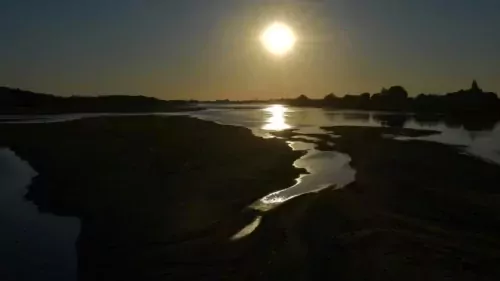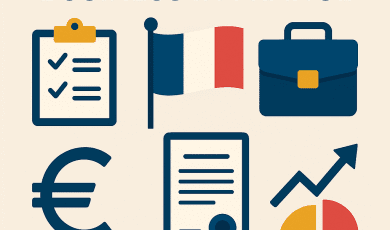
Last year's average temperature was "very far above 2020 which held the previous record" of 14.07°C, Météo France said in a statement.
All but two months – January and April – were hotter than usual, the weather service said, calling the high temperatures "a symptom of climate change".
A record rainfall deficit has also left many rivers, particularly in the south of France, below their normal levels, despite autumn and winter rains.
The groundwater level remains low in several regions, obliging local authorities to restrict the use of water for inessential purposes such as car washing or lawn care.
Drought warnings are in place in the eastern Pyrenees, in Savoy and in the upper reaches of the Garonne River. Some areas of southern and eastern France have now suffered six consecutive months of drought.
A mild, damp winter has also left many ski slopes in the Alps and Pyrenees without snow.
Bad news underground
France's groundwater resources have been struggling to catch up this winter due to a lack of rain from last autumn. Unusually mild conditions kept plants and vegetation active far longer than usual, draining the available supply of water that could otherwise be used for restocking reserves. As such, it looks like recharging efforts are two months behind schedule according to the National Bureau for Geological and Mining Research.
The winter of 2021-22 was unusually dry, meaning that agricultural irrigation, which draws on groundwater, started earlier last spring. By the time the summer heatwave arrived, levels were already depleted.
More than one-quarter of France continues to suffer from water table insufficiency.
The importance of groundwater levels is that they determine the level of surface rivers and set the tone for the coming summer.
The amount of fresh water available in France declined by 14 percent between 1900 and 2018, the result of decreasing rainfall and increased evaporation from agricultural crops.
The government is expected to announce measures to boost the efficiency of water use at a conference in Brittany later this month.








